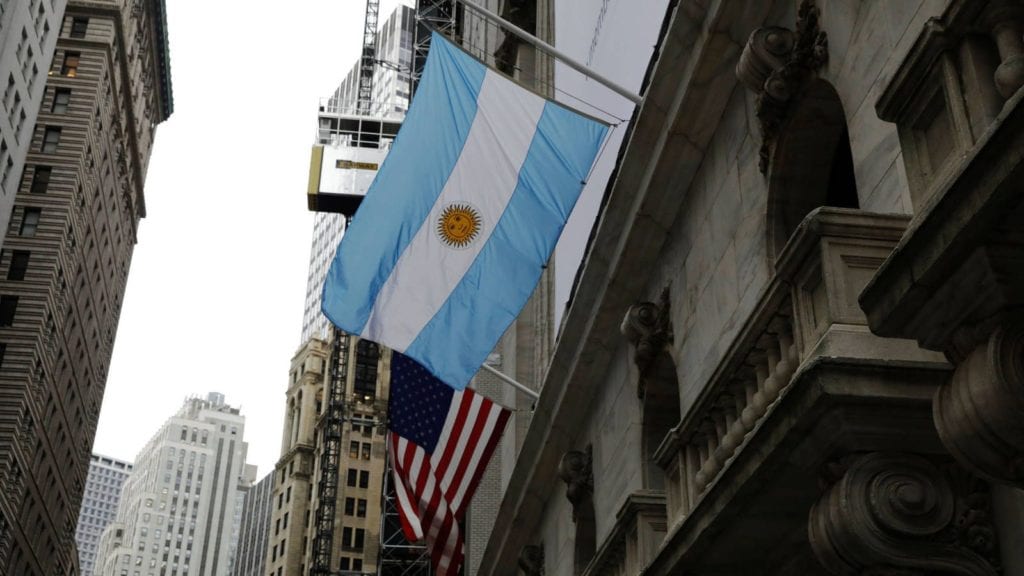While the World Health Organization (WHO) recently announced that the new epicenter of the spread of COVID-19 in the world is South and North America, Argentina on the night of May 23, was in a state of technical default. This situation developed after the payment deadline of about $ 503 million dollars in the form of interest on three issues of government bonds. How does the government of the Latin American country intend to get out of the ninth default in Argentine history?
In addition to the outbreak of coronavirus in the region, one of the most discussed topics in Latin America last week was Argentina, which again defaulted: for the ninth time in its history, having failed to make interest payments on government bonds on time. On May 22, a 30-day grace period for interest payments for a total of about $ 503 million dollars for three issues of Argentinean bonds in foreign currency expired. The day before, the Ministry of Economy of Argentina extended the proposal for restructuring the country’s external debt in the amount of $ 66 billion US dollars until June 2. In addition, the proposal includes the cancellation of about two-thirds of payments and a three-year deferment, while lenders are ready to go only for a one-year moratorium. Such restructuring will affect, including some securities that were already restructured in 2005.
Argentina’s ninth default officially came on May 23rd. The Latin American country did not make coupon payments of $ 503 million dollars for three issues of dollar bonds issued under the laws of the state of New York. These bonds must be redeemed in 2021, 2026 and 2046.

Turning to the formal side of the issue, it is worth noting that the deadline came on April 22, but Argentina officially had another 30 days to avoid default. During this period, the Argentinean government expected to agree with creditors on the restructuring of external debt in the amount of $ 66 billion US dollars. However, so far this has not been possible, and the Argentinean government has extended its restructured offer to creditors until June 2. Buenos Aires does not intend to pay until a final agreement is concluded.
By the way, the previous default of Argentina was recorded in 2014, and the largest, according to the estimates of economic analysts, occurred in 2001, when large-scale protests and riots “hit” the Latin American country. By the way, then the default of 2001 excluded Argentina from international debt markets until 2016. However, already in 2017, the Argentinean government unexpectedly managed to place centenary dollar bonds, which caused great interest among investors.
The technical default with which Argentina faced last week should not entail immediate legal action on the part of the creditors, as they announced their intention to continue negotiations with the government of the Latin American country on debt restructuring. It is worth recalling that the proposal of the Argentinean authorities in April to holders of government securities totaling about $ 66 billion US dollars, provided for a detailed delay in payment of interest on debt until 2023 and the principal amount of debt until 2026 when writing off 62% of coupon payments totaling $ 38 billion dollars and 5.4% of the principal amount of $ 3.6 billion.
Argentinean external creditors after the default of the Latin American country have the right to present all their bonds for immediate repayment, and in case of refusal to pay, they can begin to arrest sovereign property of the country abroad. Nevertheless, economists believe that this will not happen, so the default is likely to become selective, rather than comprehensive. Today, no one intends to present bonds for early repayment. According to financial analysts, this could have made sense if Argentina had some assets to withdraw, but there aren’t such assets at the moment. In connection with this situation, Buenos Aires and creditors are negotiating a restructuring.

Three groups of holders of government bonds, representing Argentina’s largest lenders, already issued a joint statement in early May, in which they said they were not ready to support the Buenos Aires proposal for the restructuring of the public debt. The government of the Latin American country continues to negotiate restructuring with creditors, as emphasized by Minister of Economics Martin Guzman (Spanish – Martín Maximiliano Guzmán) on May 21. According to Guzman, “all parties at the table are interested in resolving the situation”. The Argentinean Minister of Economics explained the proposal by the fact that amid the sanitary crisis caused by the COVID-19 pandemic, the country cannot spend 20% of the state budget on coupon payments on government bonds.
At the beginning of the year, the International Monetary Fund (IMF) called Argentina the “unacceptable” debt burden, warning that private lenders would have to make a “significant contribution” to help the country cope with the debt crisis. At the end of 2019, the total debt of the Latin American country amounted to about $ 323 billion dollars. Therefore, in a statement on May 21, Martin Guzman emphasized that it is “extremely important” that Argentina’s debt burden return to an acceptable level.

The details of the response proposal have not yet been advertised, the head of state Alberto Fernandez (Spanish – Alberto Ángel Fernández) is actively studying it, since it is in the interests of Argentina to complete negotiations as soon as possible. However, a number of analysts believe that this negotiation process on restructuring may last until next year, given that by the end of June, the Latin American country will be obliged to pay regular interest on government bonds. In addition, one of the most unfavorable scenarios for the development of the situation may be the call of state representatives to the Supreme Court of the United States (SCOTUS), which will be much more difficult to agree with.
To summarize, you should turn to official statistics. In Argentina, a recession has been observed for the third year, inflation in 2019 reached 54%, and in 2020 it is expected to be around 40%. As the reports of international organizations such as the United Nations and the Economic Commission for Latin America and the Caribbean (Spanish – Comisión Económica para América Latina y el Caribe, CEPAL) demonstrate, more than a third of the population today lives below the poverty line. In May, Argentinean investors, in anticipation of default, began actively withdrawing dollars from their accounts with national banks, and the dollar/peso rate on the “black” market was already double the official rate.


